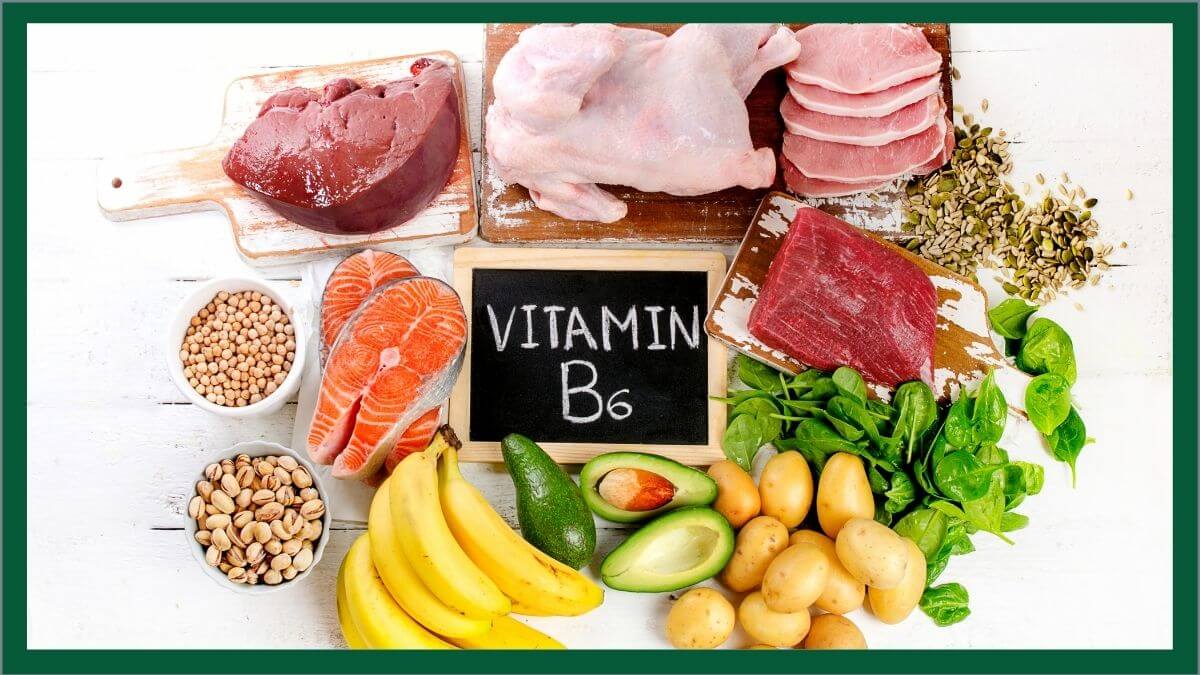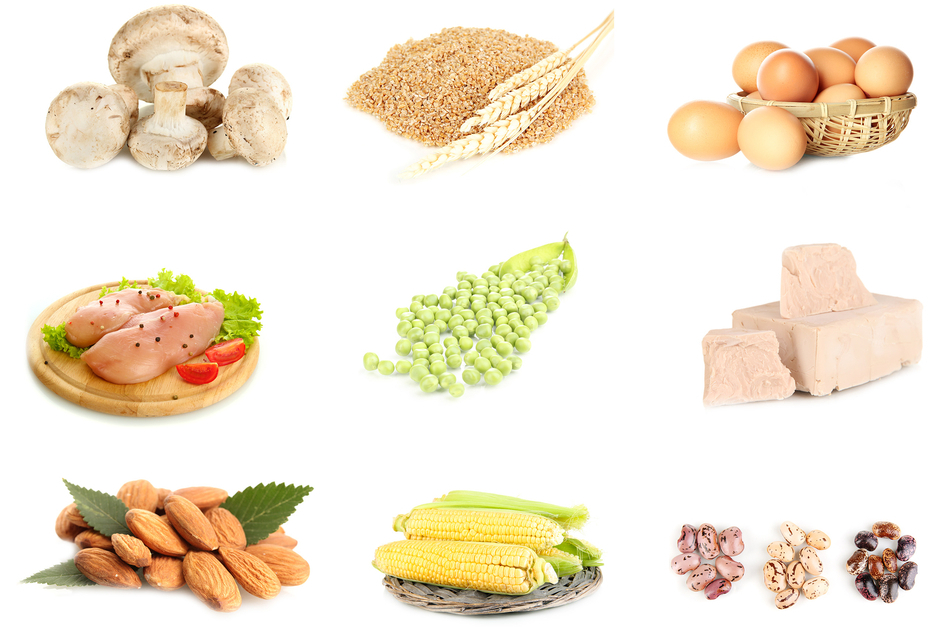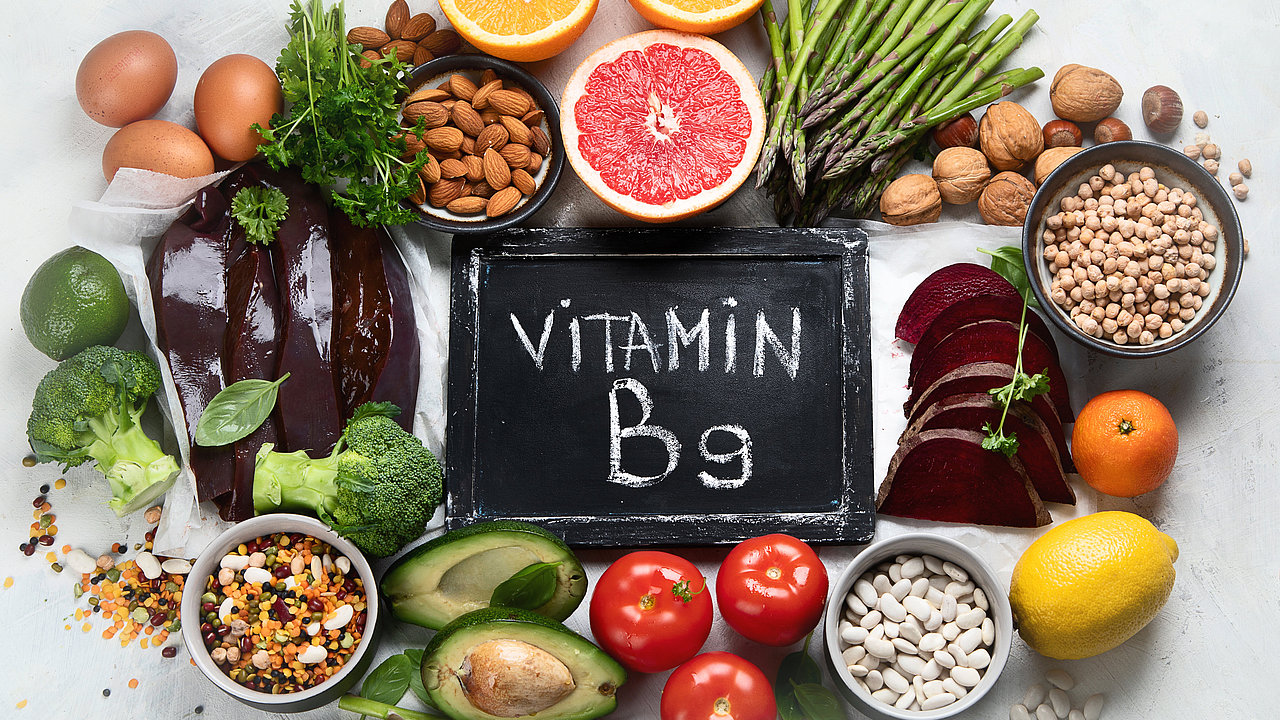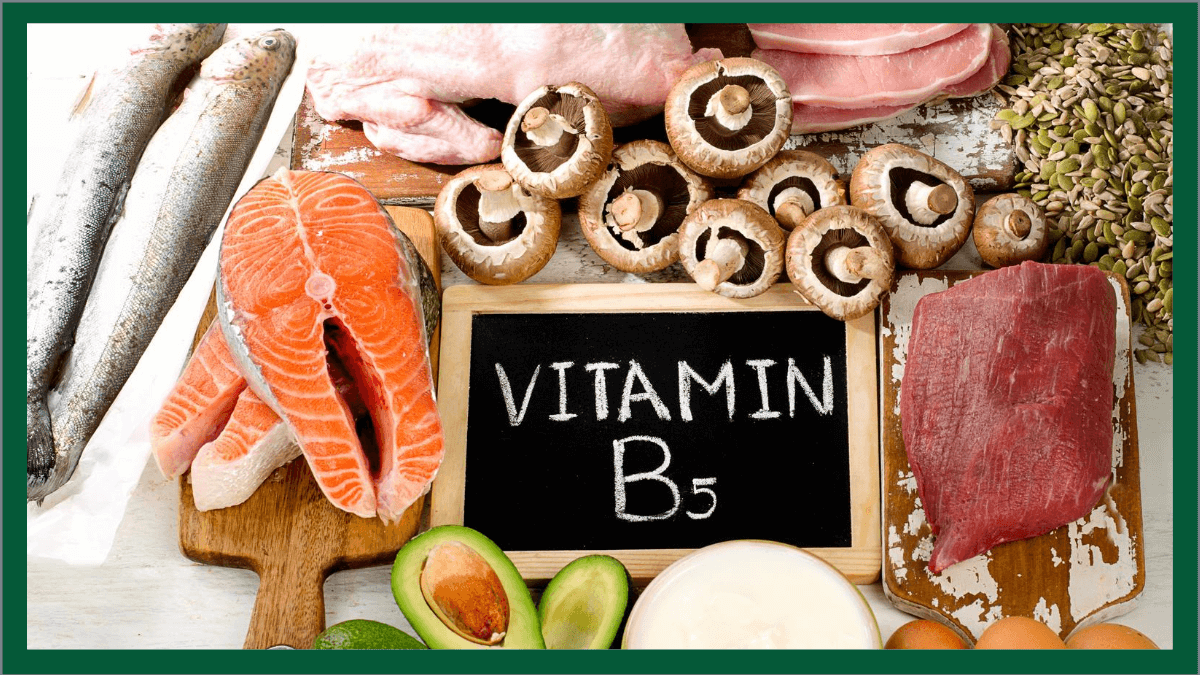Compensation for vitamin B deficiency and ways to treat it B vitamins are a group of eight nutrients, each of which has a unique role in maintaining the health of the body.
To solve vitamin B deficiency, we suggest IV drip. Because iv drips are rich in vitamin B, contact us for more information about iv drip Dubai.
Table of Contents
vitamin B deficiency
They are especially important for maintaining cell health and energy. The symptoms of vitamin B deficiency vary depending on which type of vitamin B is lacking in your body. Some foods contain several B vitamins and some foods contain more of one type of these vitamins.
Having a balanced diet is very important to provide all the nutrients the body needs. In the following, you will learn about the most common B vitamins, their function, symptoms of vitamin B deficiency and its treatment.
vitamin c deficiency
Severe deficiency, called scurvy, causes bruising, gum and dental problems, dry hair and skin, and anemia. The diagnosis is based on symptoms and sometimes blood tests. Increasing consumption of fresh fruits and vegetables or taking vitamin C supplements by mouth usually corrects the deficiency.
Read More : vitamin c deficiency .
Do B vitamins help with stress?
B-group vitamins are essential to the body’s stress response. Vitamin B1, B2, B3, B6 and B12 help to maintain a healthy nervous system that allows the body to effectively fight the symptoms of stress. Other B vitamins are needed for energy production to aid the body’s stress response.
Read More : Anti Stress Drinks .
Types of vitamin B and symptoms of deficiency of each of them
There are different types of vitamin B, each of which has a different function in the body. The symptoms of vitamin B deficiency depend on which type of vitamin B deficiency you have. Also, it is mentioned in the following that what types of vitamin B are found in which foods.
Vitamin B12
Vitamin B12, also called cobalamin, helps regulate the nervous system and also plays a role in the growth and formation of red blood cells.
Symptoms of vitamin B12 deficiency
Vitamin B12 deficiency can lead to disorders of the nervous system and circulatory system. Vitamin B12 deficiency can lead to megaloblastic anemia. Megaloblastic anemia is a disease in which the bone marrow produces abnormally large red blood cells that do not work properly. Psychological diseases such as dementia, paranoia, depression and behavioral changes can also occur as a result of vitamin B12 deficiency. Nerve damage is sometimes irreversible. Vitamin B12 deficiency can cause the following symptoms:
- tiredness
- weakness
- constipation
- Loss of appetite
- Weight Loss
- Numbness and tingling of hands and feet
- Balance problems
- confusion
- Weak memory
- Mouth or tongue pain
Which foods contain vitamin B12?
Vitamin B12 is primarily found in meat and dairy products, so people on a vegetarian diet are at risk for vitamin B12 deficiency. However, there are other dietary options to meet B12 needs in these individuals. Plant sources of this vitamin include dairy products and eggs. Plant sources of B12 include fortified foods and nutritional yeast. The best sources of vitamin B12 include:
- beef liver
- Shell
- Meat, including fish and poultry
- egg
- Lion
- Cheese
- Enriched breakfast cereals
- nutritional yeast
- Other fortified foods, including plant-based milks and flours

Vitamin B6
Vitamin B6, also called pyridoxine, helps the body convert food into energy. It can also help the body fight infections by supporting the immune system. Pregnant and lactating women need this vitamin to help the normal development of their child’s brain.
Symptoms of vitamin B6 deficiency
An insufficient amount of B6 can lead to anemia as well as skin disorders, such as an itchy rash or cracks in the mouth. B6 deficiency can also cause:
- depression
- confusion
- nausea
- Anemia
- Susceptibility to infections
- Skin rash or dermatitis
Which foods contain vitamin B6?
Foods rich in vitamin B6 include:
- Chicken and fish
- Potatoes and other starchy vegetables
- Fruits, except citrus fruits

Vitamins B1 and B2
Vitamin B1 is called thiamin and vitamin B2 is called riboflavin. These vitamins help convert food into energy. Vitamin B1 has neurological benefits and vitamin B2 helps maintain proper vision.
Symptoms of vitamin B1 or B2 deficiency
Vitamin B1 and B2 deficiency is rare in developed countries. This is because many foods such as milk and whole grains are fortified with these vitamins. People who abuse alcohol usually suffer from the symptoms of this vitamin deficiency. Some of its symptoms are: confusion and cracks on the sides of the mouth.
Which foods contain vitamin B1 and B2?
Most people get their B1 and B2 from fortified breakfast cereals and whole grains. The sources of vitamin B1 are:
- Whole grains
- Enriched bread, pasta and rice
- pork meat
- Fish
- Legumes, including black beans and soybeans
- Nuts and seeds
Sources of vitamin B2 are:
- egg
- Organ meat, including kidney and liver
- Lean meat or lean meat
- low-fat milk
- Green leafy vegetables, including broccoli and spinach
- Enriched cereals and bread

Vitamin B3
Vitamin B3, also called niacin, helps convert food into energy. Also, this vitamin helps in proper digestion of food and appetite and is important for cell growth.
Symptoms of vitamin B3 deficiency
Niacin deficiency can cause digestive problems such as nausea and abdominal cramps. Severe vitamin B3 deficiency may also cause mental confusion. Severe deficiency can lead to a disease called Plager, the symptoms of which are:
- Rough skin that turns red or brown when exposed to the sun
- Red lightening of the tongue
- Vomit
- Constipation or diarrhea
- tiredness
- Aggressive, paranoid, or suicidal behavior
- Delusion
Which foods contain vitamin B3?
Food sources of vitamin B3 include:
- Meat, including chicken, beef, pork and fish
- Some nuts, legumes and grains
- Enriched bread and cereals

Vitamin B9
Vitamin B9 is also called folate. Folate occurs naturally in foods. Folic acid is the synthetic form of this vitamin that is often found in fortified and processed foods. Like most B vitamins, B9 promotes the growth of red blood cells. Also, if pregnant women take this vitamin, it reduces the risk of birth defects in their children.
Symptoms of vitamin B9 deficiency
Low levels of vitamin B9 can lead to the following symptoms:
- Megaloblastic anemia that causes weakness
- tiredness
- Difficulty concentrating
- Irritability
- Headache
- heart beat
- Shortness of breath
- Open sores in the mouth
- Changes in skin, hair, or fingernail color
Pregnant women with folate deficiency may have neural tube defects such as spina bifida. However, excessive use of folic acid supplements during pregnancy may also lead to neurological problems in the baby.
Which foods contain vitamin B9?
Food sources of folate include:
- beef liver
- Asparagus
- Brussels sprouts
- Dark green leafy vegetables, including spinach and mustard greens
- Oranges and orange juice
- Other fruits and juices
- Peanuts and other nuts
- Beans, including kidney beans
- Peas, including black-eyed peas
Foods enriched with folic acid include:
- Enriched bread, flour, pasta and rice
- Enriched breakfast cereals

Vitamin B5
Vitamin B5 or pantothenic acid is necessary to create new coenzymes, proteins and fats in the body. Red blood cells carry vitamin B5 throughout the body so the body can use this nutrient in various processes for energy and metabolism.
Symptoms of vitamin B5 deficiency
- Numbness and burning of hands and feet
- Headache
- Irritability
- Restlessness and insomnia
- lack of appetite
Which foods contain vitamin B5?
Many foods contain at least some pantothenic acid, but the highest amounts of vitamin B5 are found in the following foods:
- beef liver
- Shiitake mushrooms
- Sunflower seeds
- Chicken
- tuna fish
- Avocados
- Enriched breakfast cereals
Vitamin B7
Vitamin B7, also known as biotin, is added to many hair, skin and nail supplements. However, there is still no evidence that this vitamin helps in the growth of hair, skin and nails. Some believe that biotin may help with psoriasis. The human body needs biotin for these reasons:
- Breakdown of fats, carbohydrates and proteins
- Communication between body cells
- DNA regulation
Symptoms of vitamin B7 deficiency
- thinning hair
- Rashes on the skin, nose and mouth
- Brittle nails
- depression
- tiredness
Which foods contain vitamin B7?
Many foods contain biotin, including:
- Meat
- egg
- Salmon fish
- pork meat
- Beef
- Sunflower seeds
The body’s need for vitamin B
To diagnose vitamin B deficiency, it is necessary to know how much the body needs this vitamin. In the following, you will learn about the body’s need for each type of vitamin B.
Vitamin B1 :
- Adults and children over 4 years old: 1.2 mg
- Pregnant and lactating people: 1.4 mg
Vitamin B2 :
- Adults and children over 4 years old: 1.3 mg
- Pregnant and lactating people: 1.6 mg
Vitamin B3 :
- Adults and children over 4 years old: 16 mg
- Pregnant and lactating people: 18 mg
Vitamin B5 :
- Adults and children over 4 years: 5 mg
- Pregnant and lactating people: 7 mg
Vitamin B6 :
- Adults and children over 4 years: 1.7 mg
- Pregnant and lactating people: 2 mg
Vitamin B7 :
- Adults and children over 4 years: 30 micrograms
- Pregnant and lactating people: 35 micrograms
Vitamin B9 :
- Adults and children over 4 years: 400 micrograms
- Pregnant and lactating people: 600 micrograms
Vitamin B12 :
- Adults and children over 4 years: 2.4 micrograms
- Pregnant and lactating people: 2.8 micrograms
Who is at risk for vitamin B deficiency?
Some people, such as the elderly and pregnant women, are more prone to vitamin B deficiency. They need higher amounts of some B vitamins. Certain diseases such as Crohn’s disease, celiac disease, HIV and alcohol abuse can also prevent the body from absorbing B vitamins effectively and increase the risk of B vitamin deficiency.
Symptoms of vitamin B deficiency vary depending on which type of vitamin B you are deficient in. These symptoms can vary from fatigue and confusion to anemia or problems with the immune system. Rashes may also occur. To treat vitamin B deficiency, your doctor may recommend taking a supplement or increasing your intake of certain foods that contain the vitamin.
How is vitamin B deficiency diagnosed?
Diagnosing vitamin B deficiency is done through a vitamin B test, for which the required sample is blood or urine. You must be fasting to perform this test. Through this test, the deficiency of B group vitamins can be detected.
How to prevent vitamin B deficiency?
Most people do not need to take supplements to get enough B vitamins. Many delicious foods can meet your need for this vitamin. Try to eat a well-rounded diet that includes meats, seeds, fruits, and vegetables. If you don’t eat meat, eggs, or dairy, you can get vitamin B12 from fortified foods or nutritional yeast to prevent vitamin B deficiency.
If your diet is not rich in vitamin B or your body is not able to absorb this vitamin due to some diseases, your doctor may prescribe vitamin B supplements for you. Also, if you are pregnant or over 50 years old, you most likely need B vitamin supplements.
What is vitamin B supplement?
Most multivitamin supplements contain some amount of each B vitamin, and many provide 100% or more of a person’s daily requirement for each vitamin. If you are deficient in only one vitamin, you can buy B vitamins as separate supplements.
However, some evidence suggests that a complete B-complex vitamin supplement may be a better choice, even if you’re deficient in just one of the B vitamins. Researchers state that most people are deficient in B vitamins and can benefit from a high-dose B complex supplement.
Treatment of vitamin B deficiency
Treatment for vitamin B deficiency is different depending on which type of vitamin B you are deficient in. However, if you are deficient in B vitamins, it is first and foremost important to eat more foods that contain B vitamins. In situations such as not having access to these foods or suffering from underlying diseases affecting the absorption of vitamin B, the doctor may also prescribe a supplement for you.



